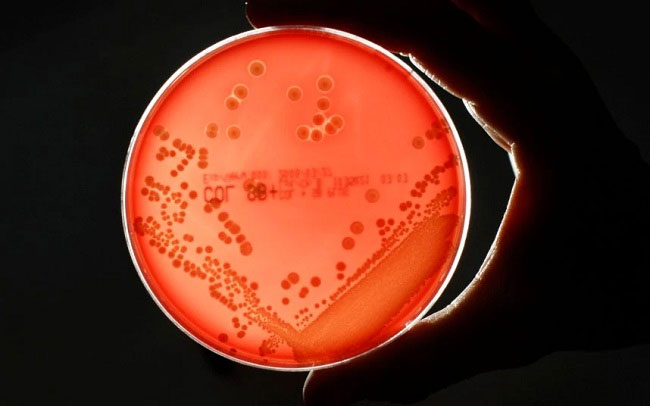The cancer-causing HP virus has become twice as difficult to kill
According to new research, antibiotic resistance to the virus that causes cancer has more than doubled in just 20 years.
The findings are based on drugs that treat Helicobacter pylori (HP) , a potentially deadly bacterium associated with stomach ulcers and stomach tumors, according to the British Telegraph .
The rate of antibiotic resistance soared from less than 10% in 1998 to nearly 22% last year. The study's lead author, Professor Francis Megraud, described the trend as "alarming". The team looked at the main antibiotics used to kill H. pylori including clarithromycin, levofloxacin and metronidazole.

These viruses are one of the biggest threats to humans.
The researchers analyzed their effects on 1,232 patients from 18 countries across Europe. Including Ireland is one of the places where the treatments proved to be most helpless.
The World Health Organization (WHO) has described these viruses as one of the biggest threats to humanity. It was named H. pylori among the most dangerous.
Professor Megraud, a bacteriologist at the University of Bordeaux, France, said: "H. pylori infection is a very complex treatment that requires a combination of drugs. With the rate of resistance to common antibiotics Used as clarithromycin at an alarming rate of nearly one percent each year, treatment options for H. pylori will gradually be limited and ineffective if new therapeutic strategies have not been developed. " he said.
"The reduced effectiveness of current treatments can maintain a high incidence of stomach cancer and other diseases such as peptic ulcer, if drug resistance continues to increase at this rate," he recommends. .
H. pylori is one of the most common infections, now up to the level of possibly one in two people. It can cause gastritis, or gastritis, leading to stomach ulcers. This situation affects one in 15 people in the UK alone.
The bacterium is also the most important risk factor for stomach cancer - the third leading cause of cancer deaths worldwide. In the UK, an estimated 6,700 cases of stomach cancer are diagnosed each year, claiming about 4,400 lives each year.
In Ireland, more than a quarter of patients (25.6%) were resistant to clarithromycin, the main antimicrobial drug - compared to only one in 20 (5%) in Denmark.
Last year, the Organization for Economic Co-operation and Development (OECD) warned that the viruses would kill about 1.3 million people in Europe - including 90,000 in the UK - by 2050.
- When does the HP bacteria cause stomach cancer?
- Vietnamese people eat and drink "in touch" easily, causing infections with stomach cancer
- Test virus 'kill cancer cells'
- Detecting new cancer-causing virus
- Zika virus kills brain cancer cells
- Zika virus lurks deep in the body, difficult to kill
- Can eradicate ulcer-causing bacteria, bowel cancer
- Science makes a virus that kills cancer cells, a major turning point for mankind?
- Use virus to kill liver cancer cells
- Smallpox virus can kill cancer cells
- 116 culprits cause cancer
- New research to upgrade chemotherapy, prevent drug-resistant cancer
- Detecting a virus can cure cancer effectively
- Can we kill cancer cells when they're sleeping?
 Why do potatoes have eyes?
Why do potatoes have eyes? 'Tragedy' the world's largest carnivorous life: Death becomes ... public toilet
'Tragedy' the world's largest carnivorous life: Death becomes ... public toilet Tomatoes were once considered 'poisonous' for 200 years
Tomatoes were once considered 'poisonous' for 200 years Detecting microscopic parasites on human face
Detecting microscopic parasites on human face How big can the human stomach expand?
How big can the human stomach expand?  Does eating spicy food really cause stomach ulcers?
Does eating spicy food really cause stomach ulcers?  Daily habits that can cause stomach pain
Daily habits that can cause stomach pain  Pea helps reduce stomach pain
Pea helps reduce stomach pain  The 5 best mushrooms to prevent type 1 carcinogens, make kids smarter
The 5 best mushrooms to prevent type 1 carcinogens, make kids smarter  Gastroenteritis: Causes, symptoms and treatment
Gastroenteritis: Causes, symptoms and treatment 